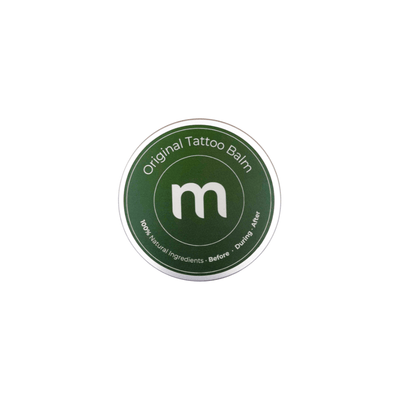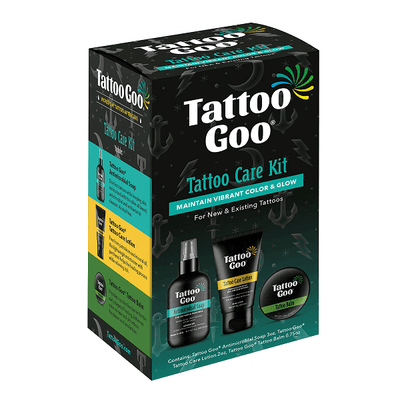Tattoos can indeed be a powerful form of art and identity, but beneath the surface of this creative journey lie potential health risks that demand your attention. Before you embark on this transformative adventure, you must be aware of the hidden dangers that can emerge from the tattooing process.
In this guide, we'll delve into the often-overlooked tattoo health risks—ones you need to know before getting inked. These risks may not only impact your skin but also your overall well-being. Understanding and addressing them is vital to enjoying your tattoo safely and responsibly.
Risk of allergic responses
Tattoo inks contain various chemicals and tattoo pigments, which can trigger allergic reaction in some individuals. If you have sensitive skin or a history of allergies, you may be at a higher risk of experiencing adverse reactions to tattoo ink. Consulting with an allergist before getting a tattoo can help you assess this risk.

Possibility of developing cancer
While there is no conclusive evidence linking tattoos to cancer, some cases have raised concerns. There have been instances of melanoma skin cancers developing within tattoos, but it's not yet proven whether tattoos directly cause cancer or if they simply overlap with pre-existing cancerous areas.
Moreover, there are concerns about certain ingredients in tattoo ink, especially black ink. Black ink contains benzo(a)pyrene, which is a carcinogen as per the International Agency for Research on Cancer (IARC). There is particular worry regarding "blackout" tattoos, where large body areas are covered in solid black ink. This may obscure changes in skin pigmentation, making it difficult to detect early signs of skin cancer, such as melanoma. Further research is needed to establish a definitive connection.
Formation of scars and keloids
The tattooing process involves creating a wound in the skin's middle layer (dermis). If a tattoo doesn't heal properly or if there are infections or allergic reactions, scarring can occur at the tattoo site. In some cases, raised bumps of scar tissue called keloids may develop within 3 to 12 months after getting a tattoo. Treatment, such as surgery, may be necessary to address severe scarring.

Potential hepatitis transmission
Hepatitis is a serious concern related to tattoos, but the risk primarily arises from unsanitary practices in tattoo parlours, such as the reuse of needles or inadequate sterilisation of equipment. To minimise the risk of hepatitis transmission, you need to choose a reputable tattoo studio that follows strict hygiene protocols, like the use of clean, disposable needles for each customer.
Susceptibility to skin infections
Tattoo process involves breaking the skin, which creates a risk of skin infection if the tattoo equipment is not properly sterilised or if the tattoo parlour is not maintained in a clean and sanitary condition. Signs of infection may include persistent redness, swelling, pain, throbbing, or the discharge of pus or yellow fluid from the tattooed skin.
Complications during MRI scans
While it's rare, individuals with tattoos may experience complications during MRI (Magnetic Resonance Imaging) scans. This can include skin reactions, redness, swelling, or even first or second-degree burns around the tattooed area.
Additionally, tattoo ink, especially metals like iron, can distort MRI images, making it challenging to interpret the results accurately. If you have tattoos and require an MRI, consult with your doctor to talk about the potential risks and alternative imaging options.

Bloodborne disease concerns
Insufficient sterilisation of tattoo equipment poses a serious risk of transmitting bloodborne diseases, including Hepatitis B, Hepatitis C, and HIV. Choosing a reputable tattoo shop that follows strict safety and hygiene protocols is crucial to minimise this risk.
How to avoid these tattoo health risks?
- Research and select a reputable tattoo studio with a good track record for safety and cleanliness.
- Ensure that the tattoo studio and its artists are properly licensed and certified by local health authorities.
- Inquire about the studio's hygiene practices, such as sterilisation of tattoo equipment, the use of disposable needles, and the sanitation of workspaces. And don't forget to observe the proper attire of your artist. Does the tattoo artist wear gloves and aprons?
- Talk to your tattoo artist about any allergies or concerns you may have. They can help you choose suitable tattoo ink and discuss any potential risks.
- Avoid consuming alcohol or taking blood-thinning medications before getting a tattoo, as they can increase bleeding and the risk of complications.
- Carefully follow the tattoo aftercare instructions provided by your tattoo artist and choose high-quality aftercare products.
- Pay close attention to the healing process. If you notice signs of infection, such as excessive redness, swelling, pain, discharge, or a fever, contact a healthcare professional promptly.
- If you have pre-existing health conditions or concerns about potential interactions between your tattoo and medical procedures (e.g., MRI), consult with your doctor before getting inked.
- Refrain from getting tattoos over moles, birthmarks, or existing skin discolourations, as this can make it challenging to monitor changes in skin pigmentation.
- Stay informed about the latest developments in tattoo safety and health risks.
Are tattoos harmful to your immune system?
It is possible for the immune system to be temporarily weakened following a new tattoo, which could potentially put the body at a disadvantage if complications such as inflammation, infection, or allergic reactions occur.
When the skin is punctured and ink is deposited, the body's immune response can be activated as it recognizes the foreign substances introduced by the tattooing process. This activation could divert some immune resources away from other functions, albeit typically temporarily.
Protect yourself from these tattoo health risks
Embarking on getting a tattoo is an exciting and deeply personal decision, but it should not be taken lightly. Educating yourself about the potential health risks associated with tattooing is essential. By being aware of the risks, practising proper aftercare, and maintaining a proactive approach to skin health, you can balance self-expression and well-being regarding your inked aspirations.
Remember, knowledge is your best ally when navigating the world of tattoos, ensuring a safer and more enjoyable experience in the long run.




























































 Studio supplies
Studio supplies












 Power & batteries
Power & batteries







 Aftercare
Aftercare



















 Apprentice
Apprentice


 Piercing & jewellery
Piercing & jewellery







 PMU supplies
PMU supplies



 New arrivals
New arrivals
 Gift vouchers
Gift vouchers
 Shop all
Shop all










































